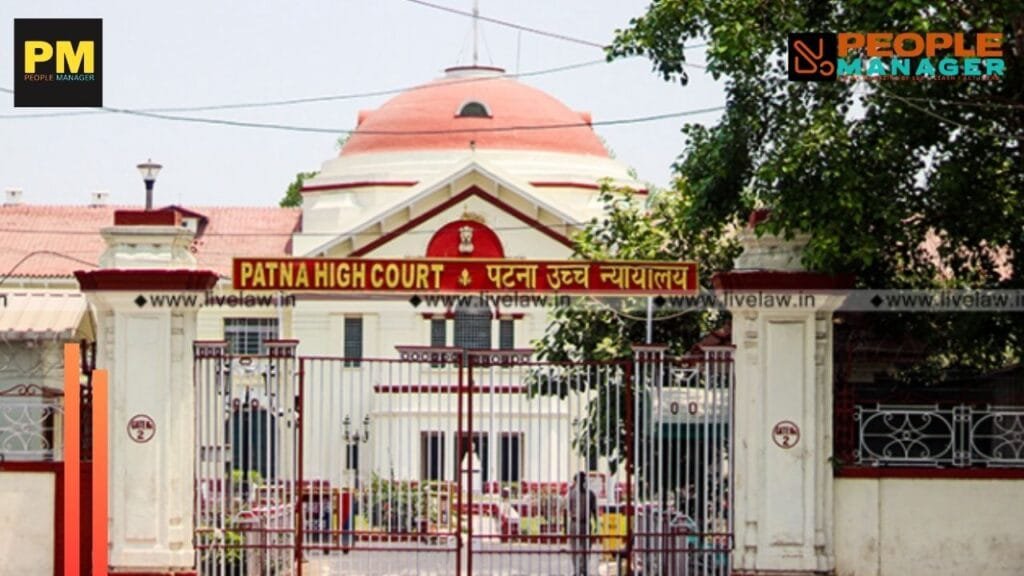Termination Of Service After Employee’s Retirement Unknown To Law In Absence Of Pending Departmental Proceedings: Patna High Court
"The termination of the service of an employee after retirement is unknown to the legal jurisprudence in absence of any departmental proceeding..." the Court disapprove the terminating service post-retirement without a proper departmental process.

The Patna High Court recently allowed a petition challenging an office order from the Water Resources Department that halted petitioner’s pension after four years and eight months of his superannuation (termination) from the post of Mapak.The court ruled that a delinquent employee would be considered to be in service, even after reaching retirement age, only if a valid departmental proceeding had done.
“The termination of the service of an employee after retirement is unknown to the legal jurisprudence in absence of any departmental proceeding…” the Court disapprove the terminating service post-retirement without a proper departmental process.
The bench of JUSTICE HARISH KUMAR, rules in favor of the petitioner, setting aside the order terminating his service and stopping his pension. It directs the State to restore the petitioner’s pension and pay him litigation costs. The judgment emphasizes the importance of due process, adherence to established legal procedures, and the consequences of administrative delays and inaction.
The judgement justified the Illegal Termination of Service After Retirement by department. The core issue is the legality of the petitioner’s service termination and subsequent pension stoppage after four years and eight months of his retirement. The Court scrutinizes the justification for this action, given the petitioner’s superannuation and the absence of a validly initiated departmental proceeding.
“Once the relationship of the employer and employee comes to an end, there is no question of termination of service of an employee…” the judgement stated
The Court questions the jurisdiction of the Chief Engineer to terminate the petitioner’s service after retirement and highlights procedural irregularities in the process. It emphasizes the necessity of adherence to Article 311 (2) of the Constitution and Rule 43(b) of the Bihar Pension Rules, 1950, when affecting an employee’s pension.
Impact of Previous Litigation and Subsequent Developments emphsis by the court. The Court examines the relevance of previous court decisions, including the dismissal of a Special Leave Petition (SLP) and the petitioner’s withdrawal of a writ petition. The State’s inaction despite these developments, allowing the petitioner to superannuate without raising concerns, is also a key point of contention.
Important Facts of the Case:
- Petitioner’s initial appointment as Mapak in 1987 was deemed illegal by the State due to procedural irregularities.
- The petitioner’s service was terminated in 2000 but subsequently reinstated following a court order, subject to the outcome of pending litigation.
- Despite the dismissal of related SLPs and the petitioner’s withdrawal of a writ petition, the State allowed him to superannuate in 2018 and receive his pension.
- Four years and eight months after retirement, the State terminated the petitioner’s service and stopped his pension, citing his illegal appointment.
“The impugned order causing termination of the service of the petitioner… is held to be wholly unjustified, perverse and illegal and not sustainable in the law; accordingly the same stands set aside.” This statement declares the State’s action as illegal and invalid.
Case: Civil Writ Jurisdiction Case No.13706 of 2023, Patna High Court
Petitioner: Chandra Kishore Sharma
Respondents: The State of Bihar and various officials from the Water Resources Department
For a deeper insight into the evolving workplace paradigm, stay tuned to PeopleManager.co.in.
- Pernod Ricard India introduces Cheers VRorld, an industry-first VR-powered onboarding experience in the Alco-Bev sector - February 11, 2026
- Jio-bp Appoints Sareeta Bhatikar as Chief Human Resources Officer to Steer Next Phase of Growth - February 11, 2026
- India Keeps Hiring as Global Markets Slow: Michael Page India Salary Report-26 - February 6, 2026








